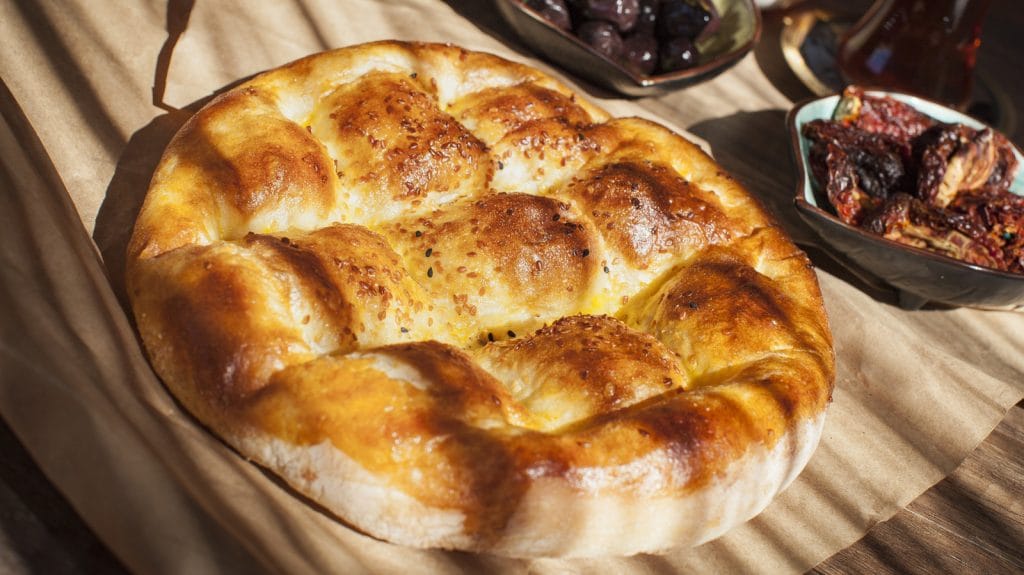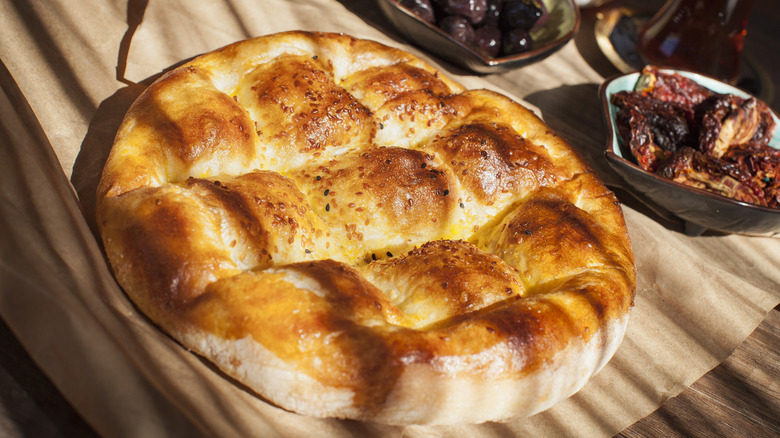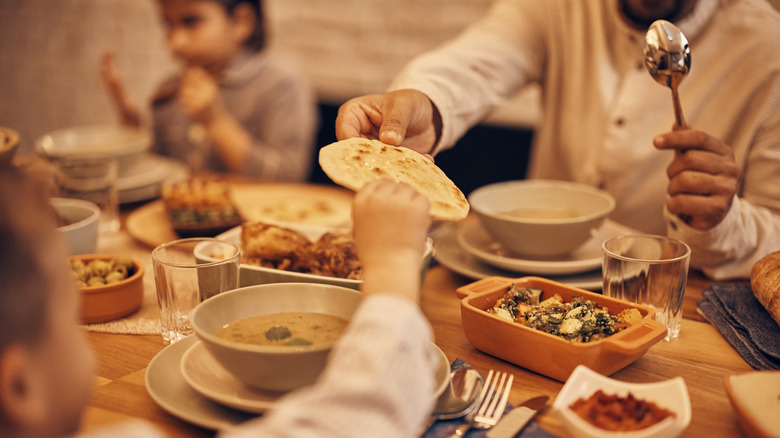
While we Americans usually picture Parisians slicing into baguettes or Italians swirling homemade ciabatta in olive oil, there’s an unsung hero of bread consumption. Turkey isn’t just into bread; the country lives and breathes the stuff. According to Guinness World Records, the average Turkish citizen consumes 440 pounds of the baked staple annually, more than three times their weight in culinary grains. As a result, the organization declared that Turks eat the most bread worldwide.
The country’s staggering appetite for bread was built on centuries of agricultural self-sufficiency. According to Turkish trade outlet Ekmeğin Sesi, 23 million tons of bread are produced each year, and an impressive 70% of the loaves are still crafted in small, traditional bakeries rather than industrial facilities. Thanks to local government subsidies that have kept the cost of flour low, the region has ample access to grains. Statista data shows that Turkey also imports around 30,000 tons of bread each year.
While Turkey stands firmly as the largest bread consumer, the country is closely followed by Serbia and Montenegro, as reported by Guinness World Records. These nations are rooted in the rich, crop-friendly soil of Europe’s breadbasket and are known for their warm springs and long growing seasons, which make them a sweet spot for wheat production.
The culinary and cultural diversity of Turkish bread
Turkish bread, known as “ekmek”, is an anchor to daily life, served alongside almost all Turkish dishes, and in near-constant production. Bakers slip dough-filled trays in the oven right before breakfast, lunch, and dinner hours to ensure optimal freshness, so you won’t find pre-packaged bread or its accompanying preservatives on local shelves.
One thing you will find in the bakeries of Turkey is a delightful variety of grain-filled goods. Their rich breadmaking history, paired with regional offshoots, means there’s plenty to taste. Pide, a prized flatbread variant, is seared over hot coals or live flames and stuffed or topped with an endless array of ingredients. The sesame-coated Simit is another beloved staple, known as the Turkish breakfast bagel. Somun best resembles the fluffy, Western-style loaves we’re used to, perfect for dipping in meze platters or filling with kebab meats.
The final factor contributing to Turkey’s outsized bread consumption is its cultural significance. Bread isn’t just a commodity — it’s an ancient tradition, a spiritual pillar, and unites a nation by spanning all regions and classes of Turkish people. From grabbing a ringed Simit snack at a bustling street stand to baking the Ramazan pidesi reserved just for the month of Ramadan, bread in Turkey is a way of life.









